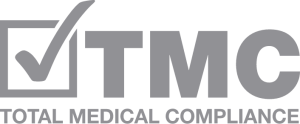It is a safe bet that the title of this article would come in last place for the “most popular topic” award. The start of a new year is always a good time to reflect and also look ahead and do our best to prepare. Last year, the U.S. Department of Health and Human Services (HHS) Office for Civil Rights (OCR) had its busiest year with the announcement of its 22nd enforcement settlement on December 15, 2022.
All indicators show no intention of this slowing down, either.
The very first enforcement of the new year was announced on January 3rd. Enforcement settlements from the OCR are not just a financial inconvenience, they also come with a corrective action plan, which typically lasts for two years. During those two years, the OCR oversees all compliance activities and requires that all HIPAA related documentation and issues be submitted and approved or reported to them according to strict guidelines. The penalty for not following the corrective action plan could result in a Civil Monetary Penalty.
The corrective action plans that have been issued by the OCR over the past few years contain compliance requirements that are not explicitly spelled out in current regulations or guidance. These requirements may be signs of what the OCR will require in future guidance or rulemaking. Nevertheless, they do represent current general best practices. Notable requirements include:
The new year will most certainly bring the finalization of the Proposed Rule that will make changes to the HIPAA Privacy Rule (“NPRM”). The NPRM was published in 2021 for public comments. Basically, the goal of the change is to help patient’s access their PHI, improve providers’ ability to share PHI for care coordination and case management, enable families and caregivers to help during emergencies or health crises, clarify disclosures of PHI in emergency or threatening circumstances, and reduce administrative burdens on providers while continuing to protect patients’ PHI. The NPRM received around 1,390 public comments. Covered entities (providers, practices, etc.) and business associates will have 240 days to become compliant with the new rule after it is published in the Federal Register.
Some of the changes in the NPRM could be an improvement, but some could present uncomfortable changes or challenges. It is important to understand that some of the items listed here might not be included in the final rule.
As the new year progresses and new requirements are announced and clarified, count on TMC to keep you informed and well within the compliance timeframe after the final rule is published. TMC clients have access to ready to use forms, as well as expert support, white-glove service, and first-class training!

Total Medical Compliance
6124 Creft Circle
Indian Trail, NC 28079
Phone: (888) 862-6742
Fax: (866) 875-3809
©2023 Total Medical Compliance

Total Medical Compliance
6124 Creft Circle
Indian Trail, NC 28079
(888) 862-6742
Fax (866) 875-3809
©2022 Total Medical Compliance